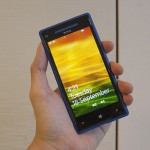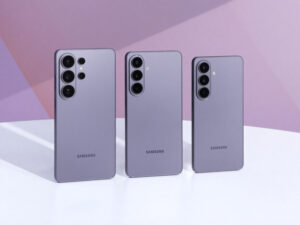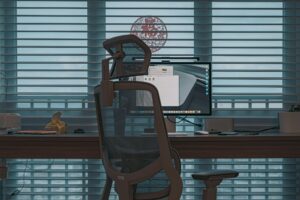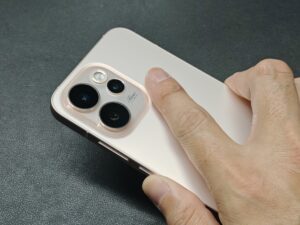Laptops will soon flip, swivel and rotate to give you both a traditional clamshell design to type on as well as a touch screen to dab at when you’re on a plane, for example.
Just how do PC makers see their role in this so-called “post-PC” era when users are expected to drastically change the way they interact with these devices? We spoke with Jessie Quek of Lenovo to find out what to expect, starting from the next few exciting months.
1. Can you look in the crystal ball and briefly tell us what Lenovo sees in the so-called “post-PC” era?
We believe that the PC will not be replaced.
We are entering a new era in technology – instead of a post-PC era, at Lenovo we call it the PC+ Era.
While PCs are central to the digital lives of millions of people and businesses, there are many new devices emerging on the scene. They offer different experiences and applications, but all share the “heart” of a PC.
Lenovo is fully committed to the PC space for the long term and will continue to drive growth and innovation in PCs while expanding our business across the four screens (PC, tablet, smartphone, smart TV) of devices and into the ecosystem of cloud, services and other applications that make up the PC+ market. This four screen strategy will help us to take advantage of the next wave of adoption of these devices by both consumers and companies.
With our PC sales surging, putting Lenovo in the second place worldwide and huge share gains in China and emerging markets, Lenovo sees major growth both today and in the future; we’re staying fully committed to the PC space for the long term.
There will be many new devices available on the market, but people will still want a real keyboard and larger screen. We will continue to redefine the PC through innovation and make the PC even more energetic, fashionable and user-friendly.
In addition to our robust consumer and commercial PC lines, we have also introduced a family of tablets worldwide, expanded our line of smartphones targeting the China market and recently announced a new smart TV product.
I am proud to share we have already made solid entries – our first tablet offering in China is off to a very fast start, already taking the second position, while sales of our smartphones have increased significantly in each quarter since its launch, putting us in the second position as well.
2. We’ve seen ultrabook designs revolutionise the PC in the past 18 months, since Intel introduced the concept. What’s the takeup in terms of sales for Lenovo?
We expect Ultrabooks to be one of the main drivers of sales amongst our PCs. Ultrabooks represent the pinnacle of what consumers expect from their computing devices—at an attractive price point—and therefore we feel there is an enormous opportunity in both the consumer and business computing markets.
This explains why are pushing such a wide range of Ultrabooks on the market today – from entry-level to premium, from consumer to business Ultrabooks.
Similarly, Intel is confident that approximately 40 per cent of consumer notebooks will be Ultrabooks at the end of 2012 while [research firm] IDC predicts that the Ultrabook PC market will ship 60 million units annually by 2015, up from 30 to 40 million in 2012.
We don’t have a crystal ball for this, but we estimate the Ultrabook market will account for approximately 30 percent of the PC market in the next 12 to 18 months, particularly as prices continue to decline and new Ultrabook models further blur the lines between laptops and tablets.
3. Comments on reports that Lenovo is preparing Intel and ARM versions of IdeaPad Yoga?
We are excited about the opportunities provided by new chip technologies. Lenovo believes that a balanced product portfolio across different form factors, operating systems and market niches will better serve the needs of different customers and strengthen our competitiveness over time.
4. Do you see users having more than one portable device on the go in future?
Yes, definitely. As the sales of portable devices increase, economies of scale will make them more affordable for consumers. Thus, we expect portable device ownership to grow over time.
This is what we envisioned when we talked earlier about the PC+ future, where devices such as tablets, smart phones and smart TVs will be an important part of consumers’ daily lives.
5. Much has been said about users bringing their own devices to their offices, especially with Windows 8 and slate-based devices. What’s hype and what’s real?
We observe that the BYOD trend is gaining traction as consumer devices get more powerful with more features that make users productive when using these gadgets for work-related purposes. For example, tablets these days have applications which allow users to create and edit presentations, making them a powerful tool for working on-the-go.
The upcoming launch of Windows 8 and associated devices will make tablets and smartphones more powerful and productive, further driving the BYOD trend. We’ll also start to see new form factors like convertibles, such as our very own Lenovo IdeaPad YOGA, which combines the tablet and laptop form factor into a device that’s ideal for the dynamic, mobile lifestyle of today’s consumers.
That being said, BYOD devices will not completely replace enterprise-issued PCs and laptops. This is because considerations like device security and support for enterprise applications need to be addressed. Not all consumer gadgets will be able to comply with these requirements.
Having a company-approved list of BYOD devices – for employees to refer to when they make a personal purchase – would perhaps be the best way forward. It gives employees the chance to purchase a device which they know will integrate properly with their company systems and software. For companies, this complements the BYOD trend while maintaining security and other company requirements.








Yup, she’s right. People who think the PC is going to go away has no idea about corp PC. It’s still a fact of life. A PC is still a tool. Its form might change. How? Well, all we need is a screen. And in a corp environment a touch screen don’t work well unless it allows you to sketch and take notes effortlessly. At the moment, no. And if those laser keyboards actually work (like Magic Cube), then all an office worker needs is a screen and perhaps a mouse. Can that be laser virtual mouse as well? Hmm….